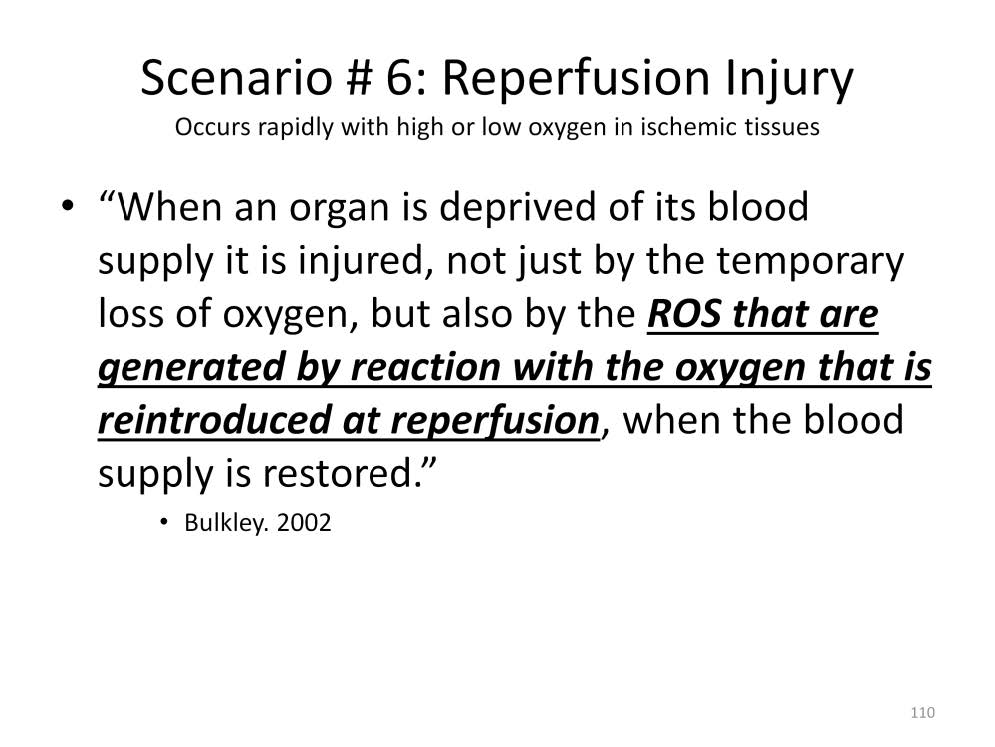
FREE RADICALS AND REACTIVE OXYGEN SPECIES: The evolution of a scientific concept, Gregory Bulkley, 2002, http://www.cosmos-club.org/web/journals/2002/bulkley.html
“Ischemia/reperfusion injury is a particularly fascinating example of ROS-mediated disease. When an organ is deprived of its blood supply (ischemia) it is injured, not just by the temporary loss of oxygen, but also by the ROS that are generated by reaction with the oxygen that is reintroduced at reperfusion, when the blood supply is restored. In some clinical situations, we can prevent this injury by giving antioxidants, sometimes even after the period of ischemia, but just prior to reperfusion. For example, the preservation of kidneys, livers, and other organs in solutions that contain antioxidants, as well as other agents, is now routine prior to their transplantation. Another example is the use of drugs that block the function of free radical generating enzymes prior to stopping the heart for cardiac surgery. These drugs help prevent reperfusion injury when the heart is restarted and flow is restored. This reperfusion injury mechanism also has been found to play an important role in patients suffering from multiple organ failure after trauma, massive surgery, or shock. Multiple organ failure is now the leading cause of death in intensive care units, and extensive efforts are under way to understand better how ROS contribute to this syndrome.”

Perfusion Theory is an educational platform for the Oxygen Pressure Field Theory (OPFT). August Krogh’s theoretical concept of the oxygen pressure field is explained and then applied to clinical applications in perfusion practice.